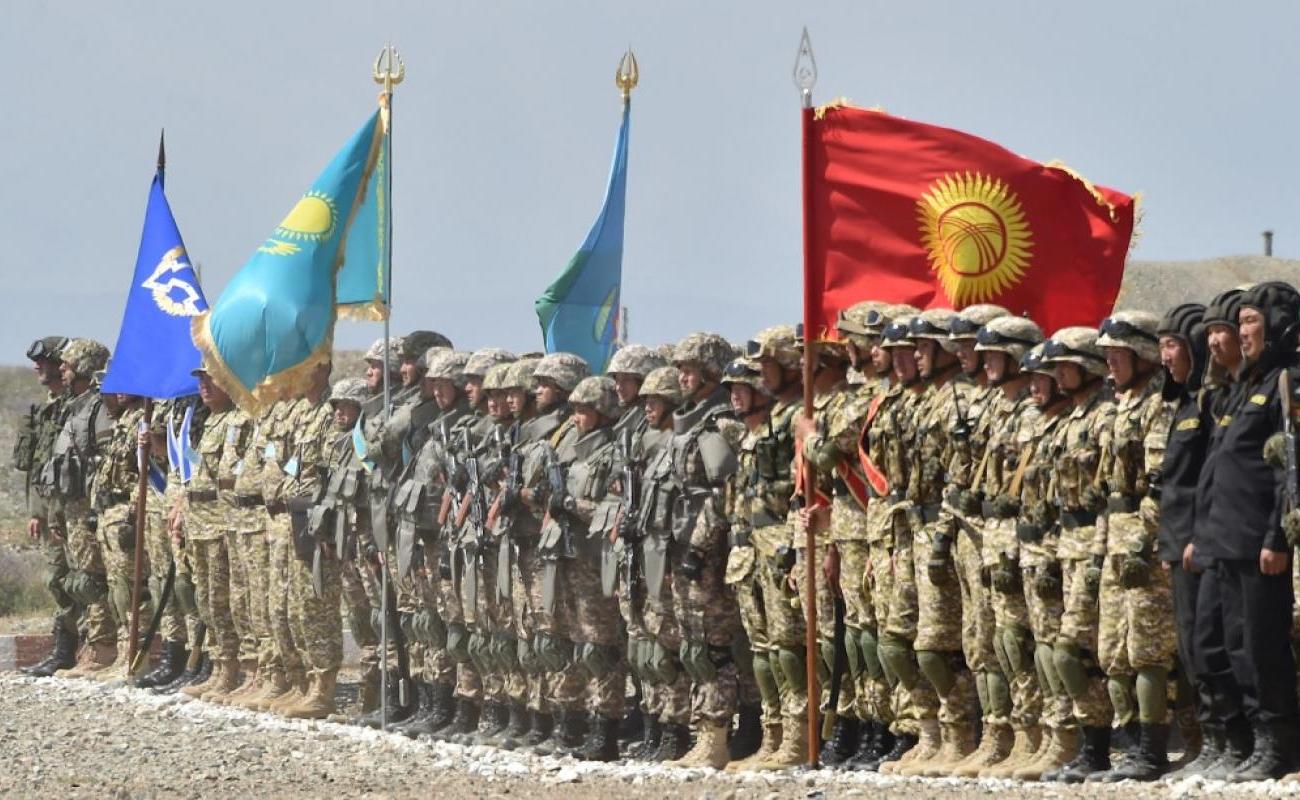3 Big Things to Know About the Russian-Led Alliance Intervening in Kazakhstan
The Collective Security Treaty Organization, explained.

Thousands of troops from a Russian-led security alliance arrived in Kazakhstan on Jan. 6 at the request of the country’s president, who has vowed to restore order amid spiraling unrest that has left dozens of protesters dead, according to local police.
The protests began on Jan. 2 over a hike in fuel prices but quickly spread throughout the country, driven by long-standing grievances over corruption and inequality. In the country’s former capital, Almaty, demonstrators clashed with police and set fire to government buildings. On Friday, Kazakh President Kassym-Jomart Tokayev said he had authorized the use of lethal force against protesters.
The protests are unprecedented in oil-rich Kazakhstan, the wealthiest country in Central Asia and one that has been ruled with an iron fist for three decades. Another first: the deployment of troops from the Russian-led Collective Security Treaty Organization (CSTO) for the first time since its founding.
The dispatch of 2,500 troops from the alliance has sparked fears that Moscow could use the crisis to strengthen its influence over Kazakhstan, which has long toed a careful line between Russia and the West. “It means that Kazakhstan has turned away from its multivector foreign policy, where it was balancing China, Russia, the U.S., and the EU,” said Jennifer Brick Murtazashvili, an expert on Central and South Asia at the University of Pittsburgh.
The Kazakh president’s decision to call in the CSTO stunned many Kazakhs and international observers. While the alliance has been around for almost 30 years, it’s kept a low profile beyond the region. Here are three big things you need to know about the alliance and what makes its deployment to Kazakhstan so significant.
What is the CSTO?
In 1992, in the wake of the collapse of the Soviet Union, several members of the Commonwealth of Independent States, all former members of the Soviet bloc, got together and signed a mutual defense pact known as the Collective Security Treaty, a smaller and less influential successor to the Cold War-era Warsaw Pact. Members came and went, and in 2002 it reconstituted as the Collective Security Treaty Organization, receiving observer status at the United Nations two years later. Aside from Russia, it currently includes five other members: Tajikistan, Kyrgyzstan, Armenia, Belarus, and Kazakhstan.
Like NATO, the CSTO is based on the principle of collective defense: An attack on one member state is taken as an attack on all members of the alliance. The alliance conducts joint military exercises and facilitates arms sales between members, but in recent years its sense of purpose has begun to languish. In a region that is no stranger to the occasional revolution and border skirmish, this week marks the first time in the organization’s 30-year history that it has responded to a call for assistance from a member state. Belarus did not ask the bloc to intervene during mass unrest in 2020 over falsified election results while Armenian officials were disappointed with the CSTO’s response to its calls for assistance amid a border dispute with Azerbaijan last year.
On Wednesday, Armenian Prime Minister Nikol Pashinyan, the CSTO’s current chair, announced that the alliance would be dispatching 2,500 “peacekeeping troops” in response to Tokayev’s request for assistance. He did so under Article 4 of the organization’s treaty, which can be triggered in the event of an attack against member states that threatens their safety, stability, or territorial integrity.
While Pashinyan referred to “external interference” in Kazakhstan in a Facebook post announcing the deployment, there is no evidence to suggest that foreign actors were involved in stirring unrest. Leaders across the region, no more so than in Russia, officials routinely frame domestic challenges to their rule as shadowy plots by Western intelligence agencies. (It should be noted that some experts believe that criminals and politically connected gangs may have seized upon the initial protests to fuel unrest. “We shouldn’t call all these people protesters,” said Nargis Kassenova, a senior fellow at Harvard University’s Davis Center for Russian and Eurasian Studies, at an Atlantic Council event on Friday.)
